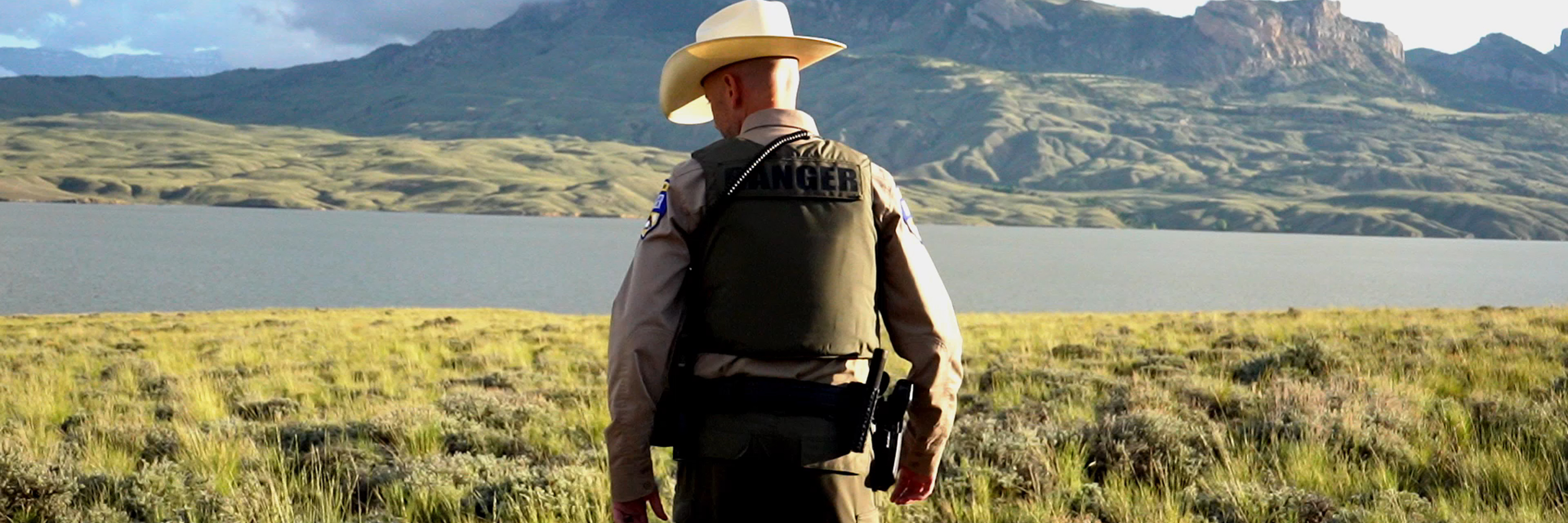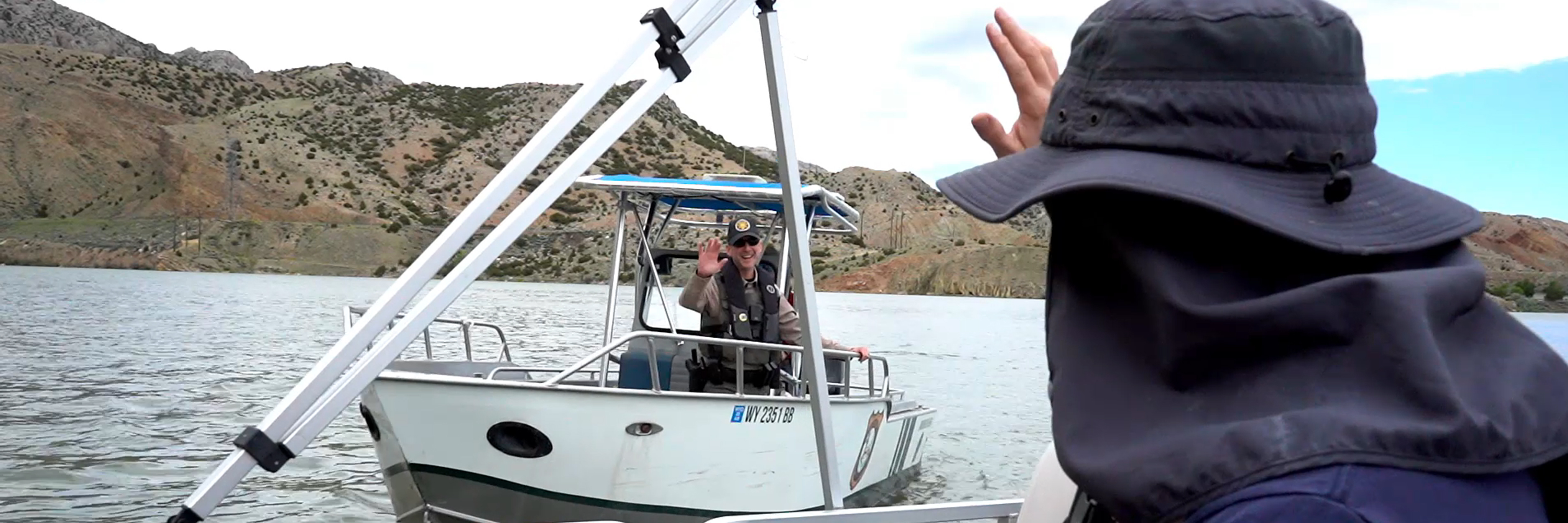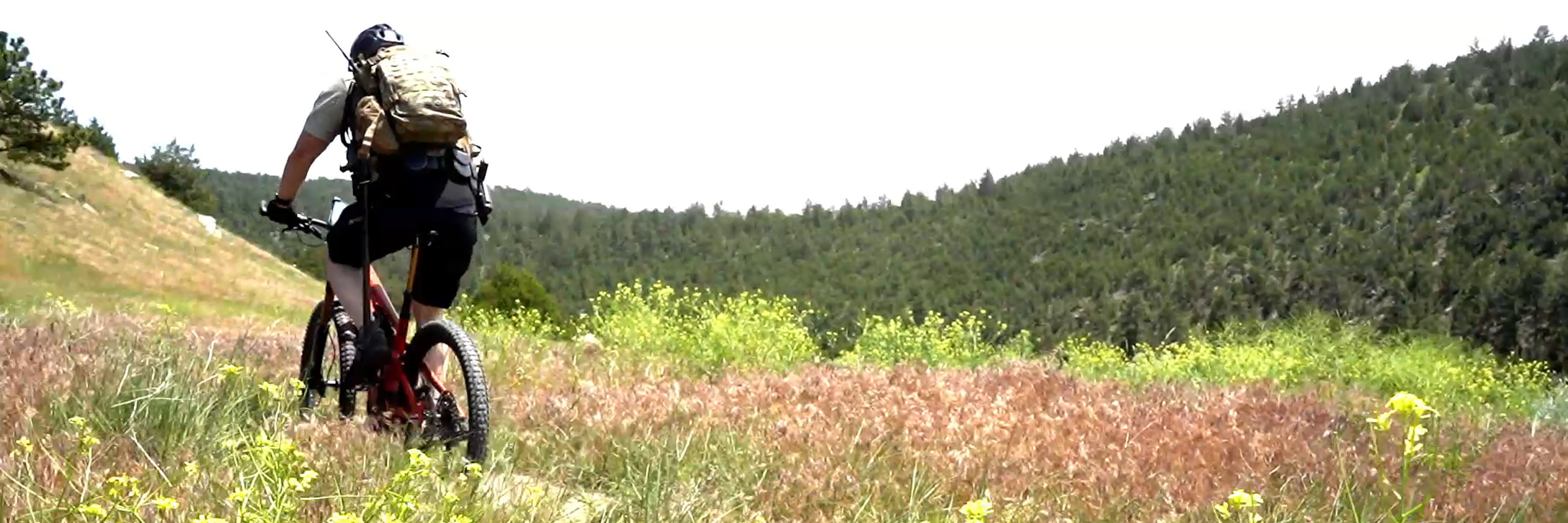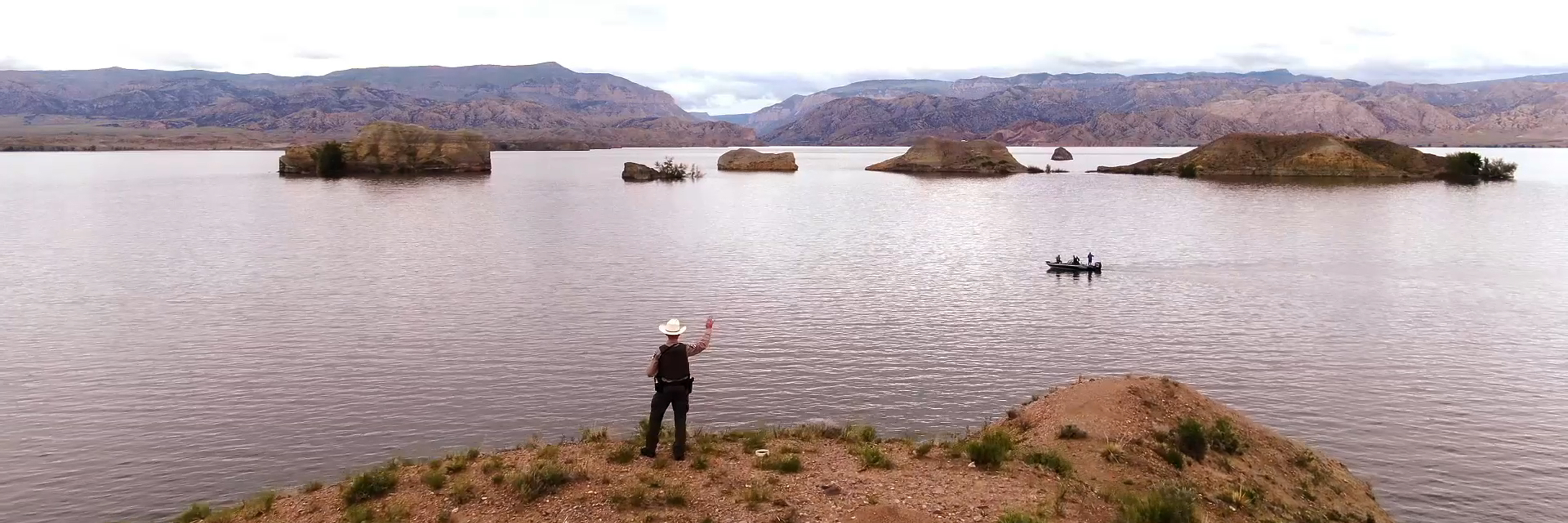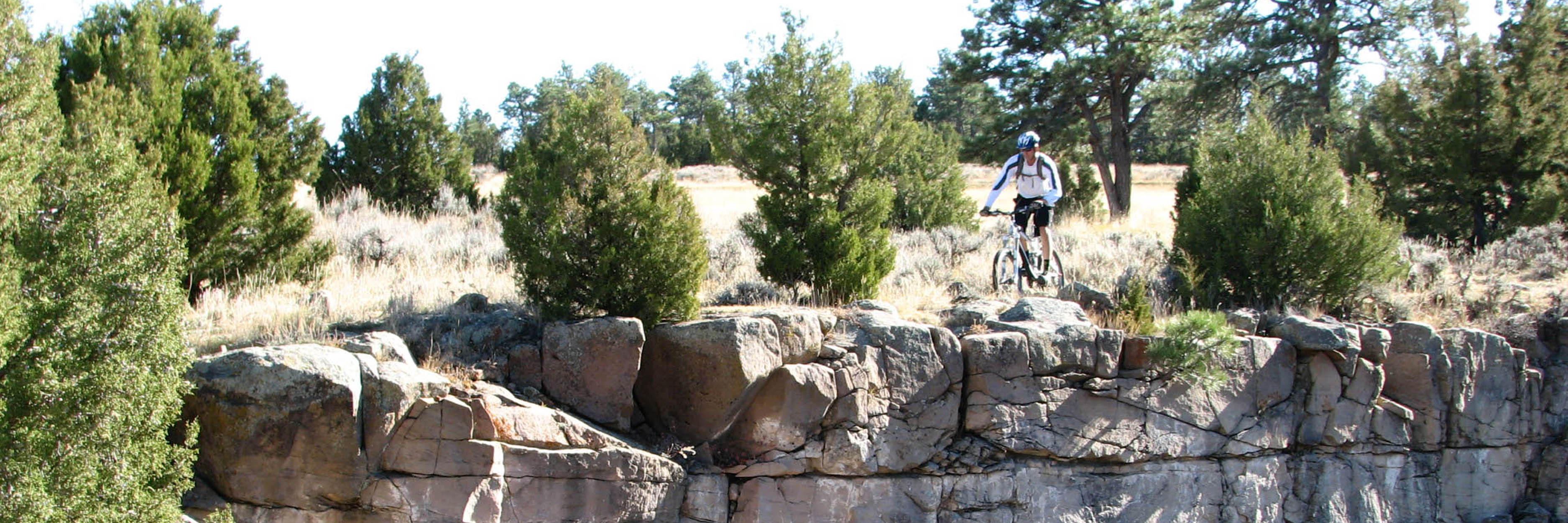HISTORY OF PARK RANGERS WHAT WYOMING RANGERS DO RESERVE PARK RANGERS BECOME A RANGERCONTACT
The duties of the modern park ranger are as varied and diverse as the parks where they serve and in recent years have become more highly specialized. Regardless of the regular duties of any one discipline, the goal of all rangers remains to protect the park resources for future generations and to protect park visitors. This goal is accomplished by the professionalism and sometimes overlapping of the different divisions. For example, an interpretive ranger may perform a law enforcement role by explaining special park regulations to visitors and encouraging them to be proper stewards of natural and cultural history. Law enforcement rangers and other park employees may contribute to the mission of the interpretive ranger by providing information to park visitors about park resources and facilities.
Wyoming Park Rangers have police powers and enforce state laws and park regulations. Wyoming Park rangers have law enforcement authority and do carry firearms and other defensive equipment as they seek to achieve respect for nature by building good relationships with local communities and the visiting public. Park Rangers also enforce laws and regulations regarding campfires and other fires on parklands. Our Park Rangers are the primary police agency in their parks. Law Enforcement Rangers experience the same incidents and calls for service as other law enforcement officers in our nation.
Interpretive and Education Rangers provide a wide range of informational services to visitors. Some rangers may provide interpretive programs to visitors intended to foster stewardship of natural resources through guided tours about the park's history, ecology, campfire talks, social media, web based outreach and historical re-enactments. All uniformed rangers, regardless of their primary duties, are often expected to be experts on the resources in their care, whether they are natural or cultural.
Park Rangers are often trained in emergency medical care and participate in search and rescue to locate lost or injured persons in the parks. Park Rangers also maintain certifications in medical care. Depending on the needs of the park where assigned, rangers may participate in high-angle rescue, swift-water rescue, ice rescue, boat patrol operators, mounted patrol and other emergency and rescue functions.
Park Rangers are often the first to spot wildland fires and are often trained to engage in wildland firefighting and rangers will call for resources to combat fires and evacuate persons from the area pending the arrival of additional firefighters.
Park Rangers are responsible for protecting the natural resources or cultural sites for which they work. This includes obtaining and preserving knowledge about the area. Park Rangers are expected to protect cultural resources and archaeological sites, monitor sensitive areas, and inform others about their findings.
Park Rangers perform light maintenance on facilities, infrastructure or equipment as part of their duties. They help in preparing for winter closures and spring reopening. Rangers are often the first to discover vandalism or weather-related damage to park roads, trails and campgrounds.
Park Rangers also work "behind the scenes" administrative task to ensure the continued operation of the parks. Park rangers may help set policy for the parks, or handle park budgets, computers work and technology, human resources, or other fields related to the administration of parks. In the case of management these positions are usually filled by individuals who have moved up from field-based park ranger positions.

























































